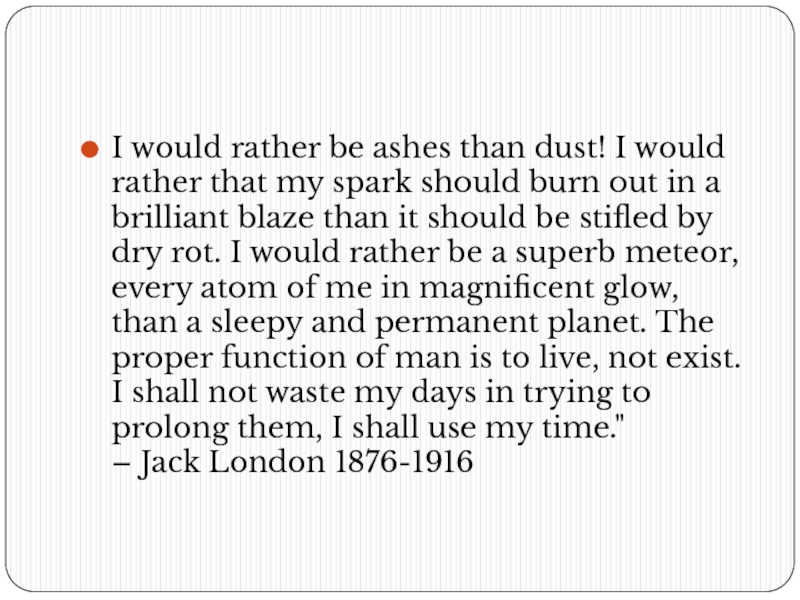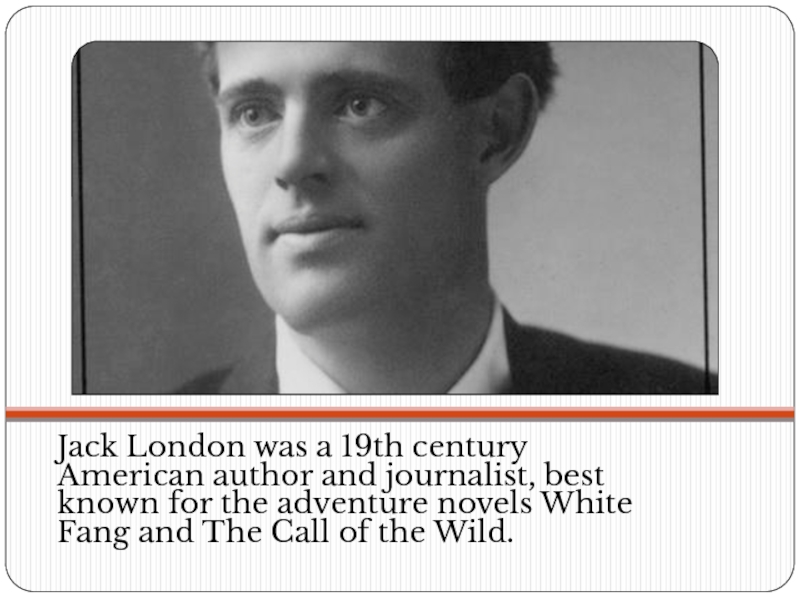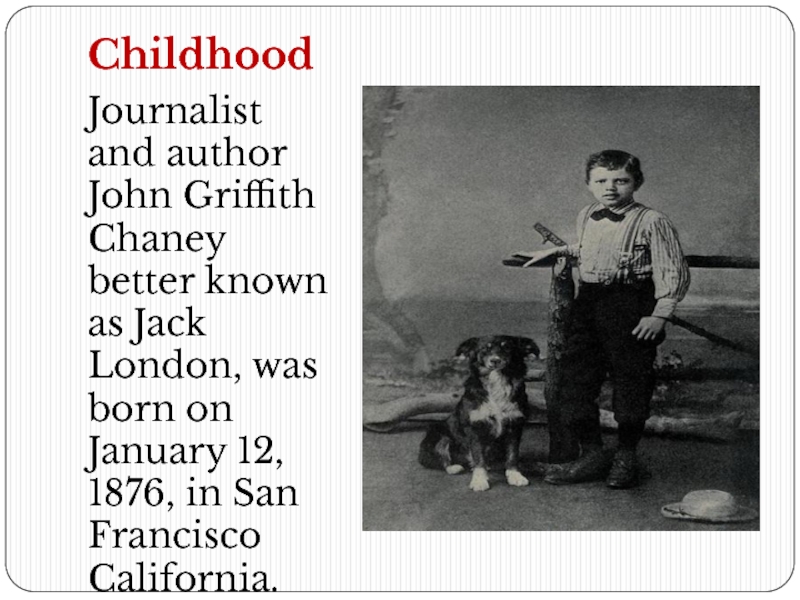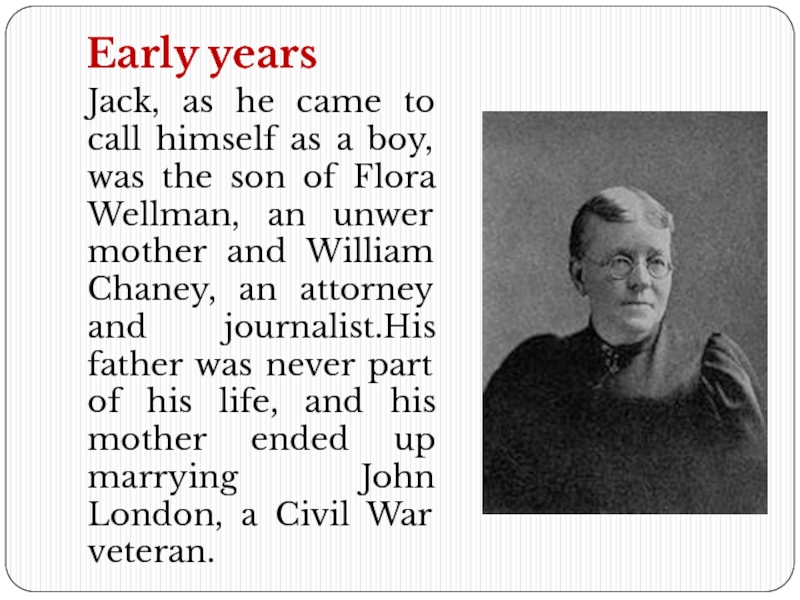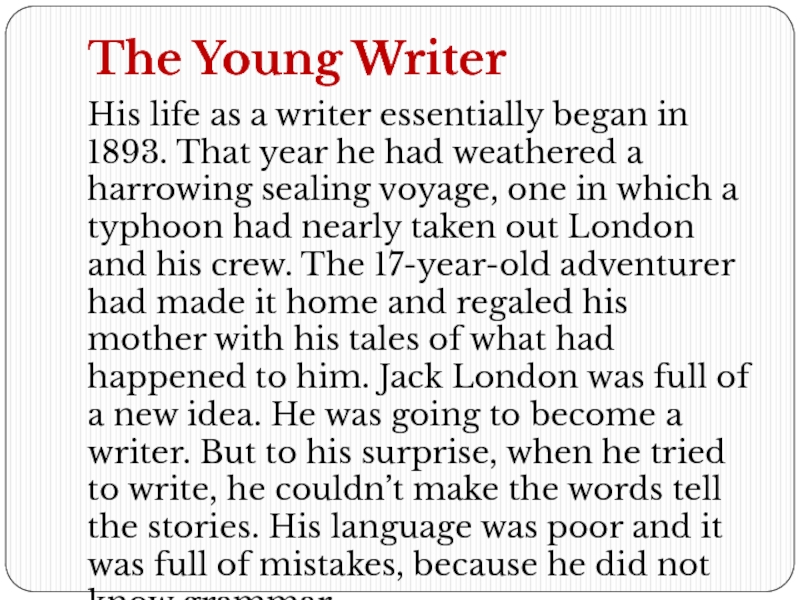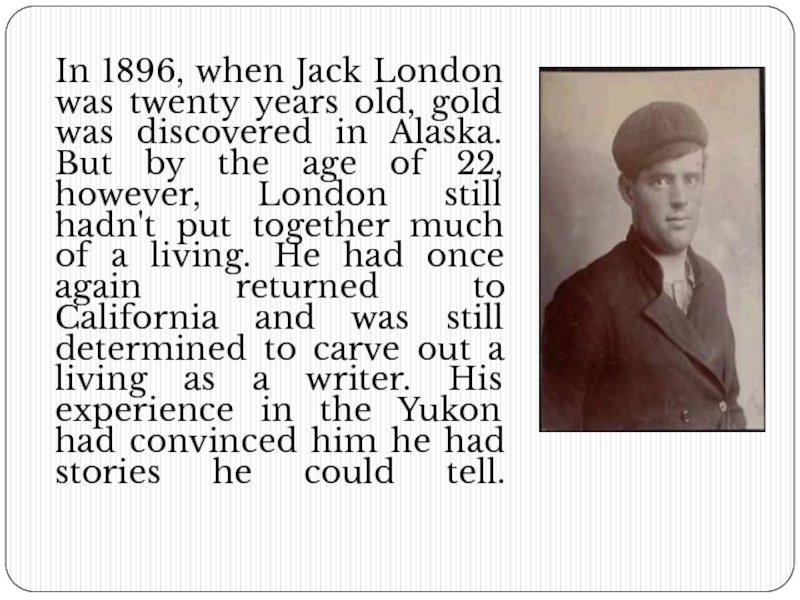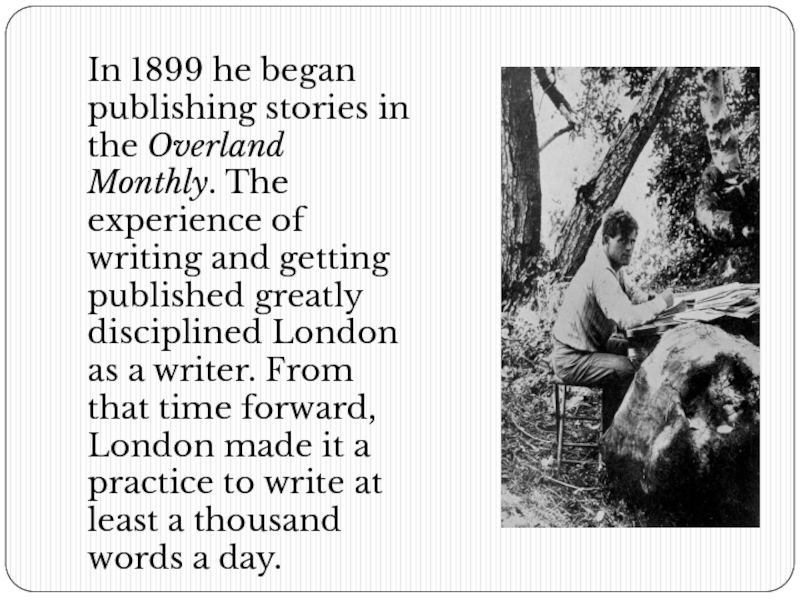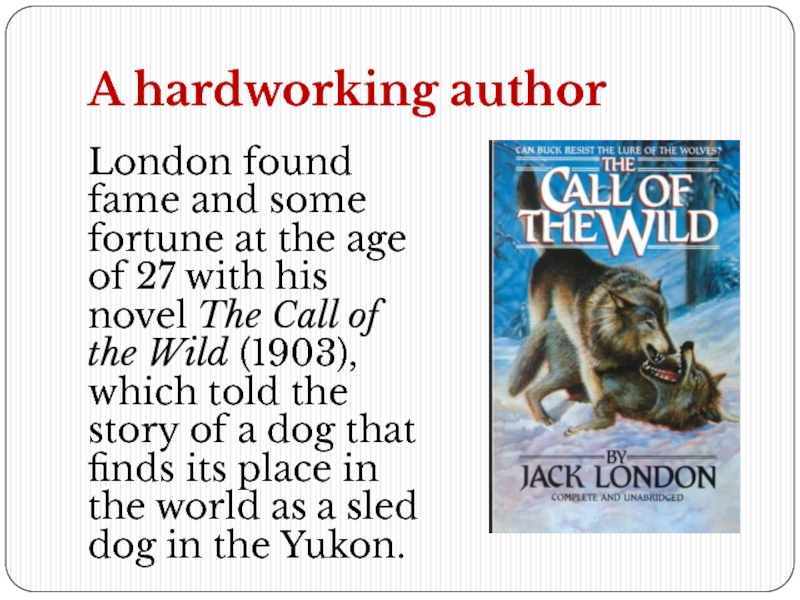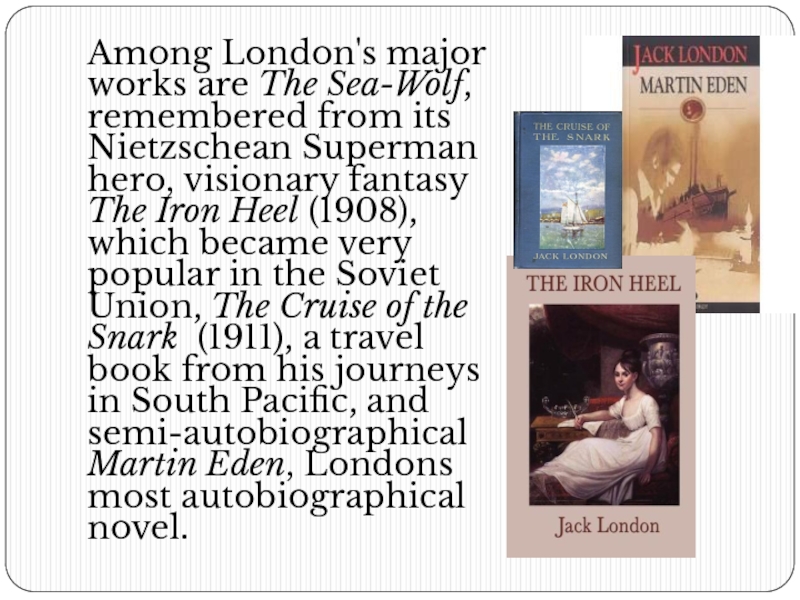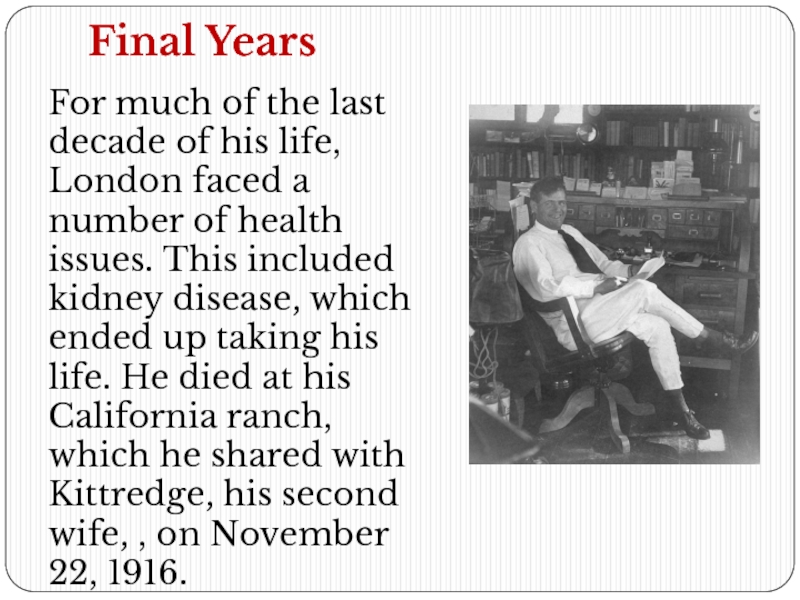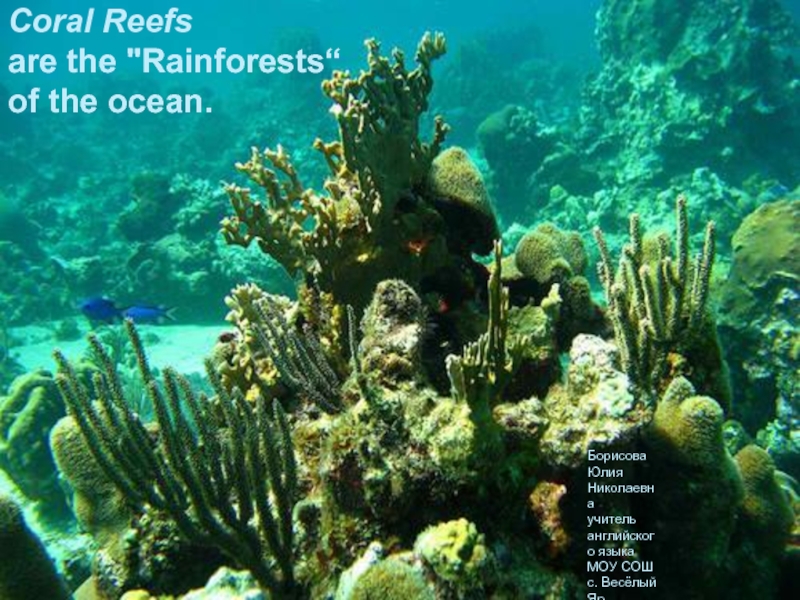Слайд 2I would rather be ashes than dust! I would rather
that my spark should burn out in a brilliant blaze
than it should be stifled by dry rot. I would rather be a superb meteor, every atom of me in magnificent glow, than a sleepy and permanent planet. The proper function of man is to live, not exist. I shall not waste my days in trying to prolong them, I shall use my time."
– Jack London 1876-1916
Слайд 3Jack London was a 19th century American author and journalist,
best known for the adventure novels White Fang and The
Call of the Wild.
Слайд 4Childhood
Journalist and author John Griffith Chaney better known as Jack
London, was born on January 12, 1876, in San Francisco
California.
Слайд 5Early years
Jack, as he came to call himself as a
boy, was the son of Flora Wellman, an unwer mother
and William Chaney, an attorney and journalist.His father was never part of his life, and his mother ended up marrying John London, a Civil War veteran.
Слайд 6The Young Writer
His life as a writer essentially began in
1893. That year he had weathered a harrowing sealing voyage,
one in which a typhoon had nearly taken out London and his crew. The 17-year-old adventurer had made it home and regaled his mother with his tales of what had happened to him. Jack London was full of a new idea. He was going to become a writer. But to his surprise, when he tried to write, he couldn’t make the words tell the stories. His language was poor and it was full of mistakes, because he did not know grammar.
Слайд 7He went to school. The pupils will be surprised when
they see somebody so much older in the class room.
He learned from his teachers and from other pupils, but most of all, he learned from books. He read all the books on the shelves of the school library and the city library. As he read novels by well-known authors he tried to notice the words they used and how they used them: he tried to discover the secrets of their art.
Слайд 8In 1896, when Jack London was twenty years old, gold
was discovered in Alaska. But by the age of 22,
however, London still hadn't put together much of a living. He had once again returned to California and was still determined to carve out a living as a writer. His experience in the Yukon had convinced him he had stories he could tell.
Слайд 9In 1899 he began publishing stories in the Overland Monthly.
The experience of writing and getting published greatly disciplined London
as a writer. From that time forward, London made it a practice to write at least a thousand words a day.
Слайд 10A hardworking author
London found fame and some fortune at the
age of 27 with his novel The Call of the
Wild (1903), which told the story of a dog that finds its place in the world as a sled dog in the Yukon.
Слайд 11The success did little to soften London's hard-driving lifestyle. A
prolific writer, he published more than 50 books over the
last 16 years of his life. The titles included The People of the Abyss (1903), which offered a scathing critique of capitalism and White Fang (1906), a popular tale about a wild wolf dog becoming domesticated.
Слайд 12Among London's major works are The Sea-Wolf, remembered from its
Nietzschean Superman hero, visionary fantasy The Iron Heel (1908), which
became very popular in the Soviet Union, The Cruise of the Snark (1911), a travel book from his journeys in South Pacific, and semi-autobiographical Martin Eden, Londons most autobiographical novel.
Слайд 13Family
In 1900 London married Bess Maddern. The couple had two
daughters together, Joan and Bess. By some accounts Bess and
London's relationship was constructed less around love and more around the idea that they could have strong, healthy children together. It's not surprising, then, that their marriage lasted just a few years.
Слайд 14Final Years
For much of the last decade of his life,
London faced a number of health issues. This included kidney
disease, which ended up taking his life. He died at his California ranch, which he shared with Kittredge, his second wife, , on November 22, 1916.

